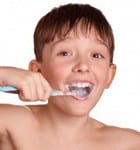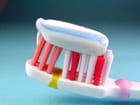 One big social problem that you can suffer from in central Leeds is bad breath; it can cripple you at work and it can cripple you socially and unless someone has ‘kindly’ pointed out that you have a problem, you may be completely ignorant to the issue. Bad breath is bad in itself for all of the above reasons, but it could indicate that you have let things slip and that there are things going wrong in your mouth. Tooth decay and gum disease are two major contenders to halitosis, as is having a condition called dry mouth, but you can only ascertain this with help from your dentist and then address it, maybe with some work in your mouth. But the reasons you got into this state in the first place could have been because of your lifestyle. Bad diet, smoking and excessive drinking, coupled with bad oral hygiene is a recipe for disaster in your mouth, let alone your body and the whole lot mangled together will lead to bad breath. Everything needs to change to at least give your system a chance to recover and stabilise itself and so that your mouth can become healthy again. The way you look after your teeth and gums will also need improvement using various methods and probably the best way you can attack this is to embrace the ways of a hygienist, maybe a nutritionist and possibly someone versed in herbal remedies. It will take hard work but it is beatable.
One big social problem that you can suffer from in central Leeds is bad breath; it can cripple you at work and it can cripple you socially and unless someone has ‘kindly’ pointed out that you have a problem, you may be completely ignorant to the issue. Bad breath is bad in itself for all of the above reasons, but it could indicate that you have let things slip and that there are things going wrong in your mouth. Tooth decay and gum disease are two major contenders to halitosis, as is having a condition called dry mouth, but you can only ascertain this with help from your dentist and then address it, maybe with some work in your mouth. But the reasons you got into this state in the first place could have been because of your lifestyle. Bad diet, smoking and excessive drinking, coupled with bad oral hygiene is a recipe for disaster in your mouth, let alone your body and the whole lot mangled together will lead to bad breath. Everything needs to change to at least give your system a chance to recover and stabilise itself and so that your mouth can become healthy again. The way you look after your teeth and gums will also need improvement using various methods and probably the best way you can attack this is to embrace the ways of a hygienist, maybe a nutritionist and possibly someone versed in herbal remedies. It will take hard work but it is beatable.














